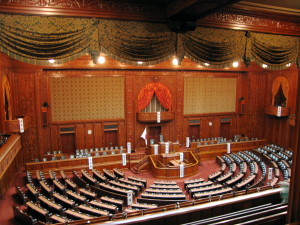Enfranchising Japan’s Youth
Japan’s new measure decreasing the voting age from 20 to 18 transforms the political landscape. According to Asia Pacific Foundation of Canada, the measure will increase the eligible voting population from 104 million to 106.4 million. Some wonder if this change responds to Japan’s demographic problems; as the world’s fastest aging population, politicians have tended to cater to older demographics. As The Association for Promoting Fair Elections reports, Japan’s 60 and 70 year olds have proportionally higher voter turnout than younger populations. By lowering the minimum age, politicians may hope to diversify their voting blocs. Still, is Japan ready to accept this new change? The largest share of Japan’s budget finances social security and nursing coverage, and this proportion will continue to rise alongside the aging population. Intergenerational conflicts have erupted because each age group has different interests and needs. However, politicians tend to neglect the youth’s concerns, such as job security, in favor of medical care for the elderly. After lowering the voting age, politicians will have to change tactics.
As a result of the change, youth activism has already picked up, resulting in organizations such as Students Emergency Action for Liberal Democracy (SEALDs). This group of young, politically aware students energetically calls for the Japanese government to uphold freedom and democracy for all. According to the group’s website, the organization advocates for constitutionalism, social security, and national security. The increased political involvement and strong desire to create change belies critics’ beliefs that the youth will not actually participate.
Many professionals and specialists support the new law. Daisake Hayashi, an assistant at Toyo University, believes that lowering the voting age is a step in the right direction for Japanese democracy. Through his own research, influenced by the United Nations Convention on the Rights of Children, he concludes that children’s civil opinions should matter just as much as any adult’s. Unfortunately, he notes that the educational system emphasizes college entrance exams and fails to instruct students in history and politics. Through greater political participation, Hayashi hopes that the youth can make up for their lack of civil education through practical application.
Japan’s new bill will introduce a new type of voter and bring different issues to the table. The political landscape is sure to change.

